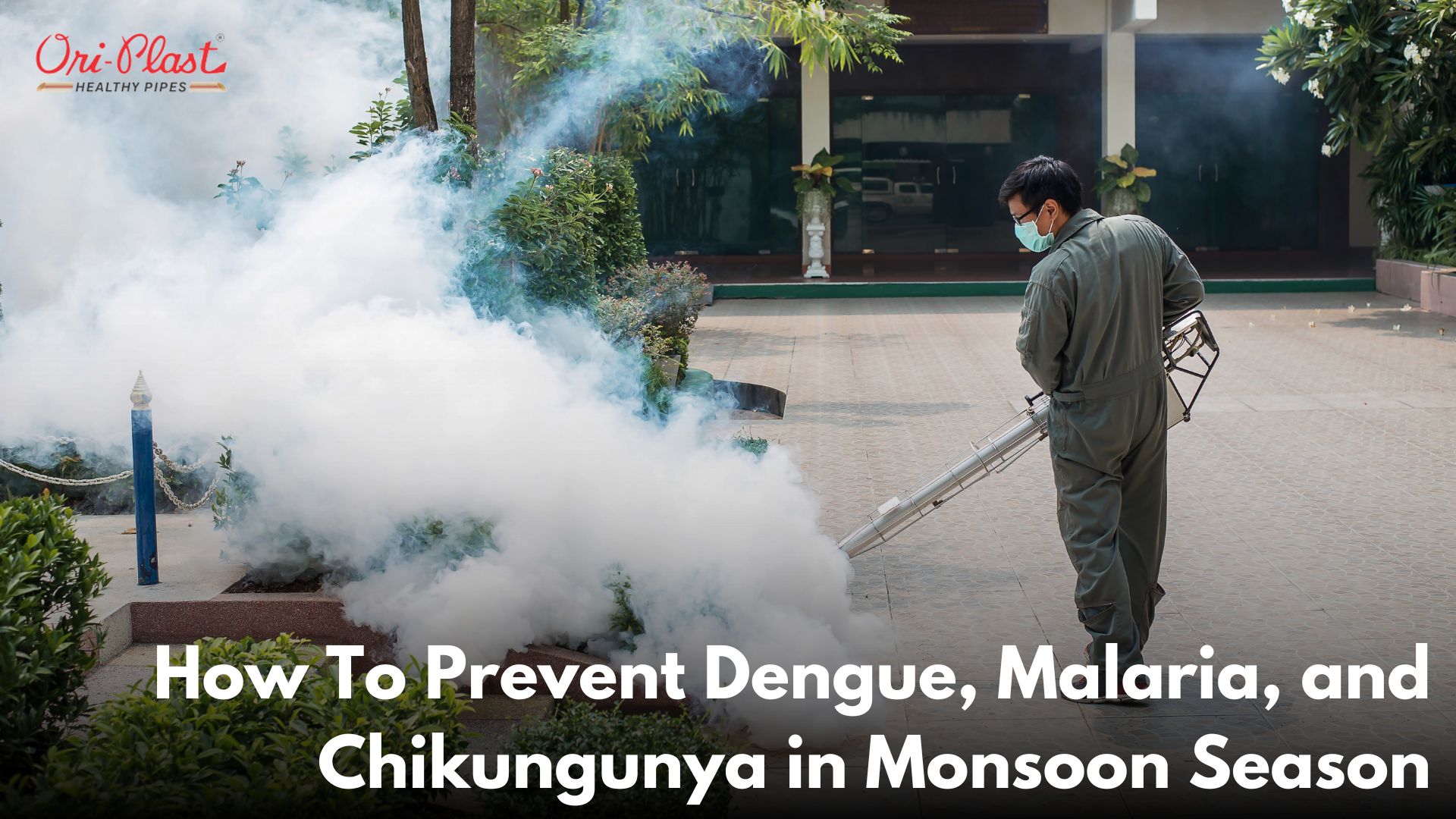The monsoon season is a time of year that many people look forward to, with its refreshing rains and lush greenery. However, it's also a season when certain mosquito-borne diseases like dengue, malaria, and chikungunya tend to thrive. These illnesses can be serious and even life-threatening if not treated promptly. In this comprehensive guide, we'll explore the causes, symptoms, and most importantly, the prevention methods for these three diseases during the monsoon season.
Understanding The Mosquito-Borne Diseases
What is Dengue?
Dengue is a viral infection transmitted by the Aedes aegypti mosquito. It's characterized by high fever, severe headaches, muscle and joint pain, and a distinctive rash. In some cases, dengue can progress to a more severe form called dengue hemorrhagic fever, which can lead to bleeding, plasma leakage, and organ impairment.
What is Malaria?
Malaria is a parasitic infection transmitted by the Anopheles mosquito. It causes flu-like symptoms such as fever, chills, and fatigue. If left untreated, malaria can lead to life-threatening complications like organ failure, seizures, and cerebral malaria.
What is Chikungunya?
Chikungunya is a viral infection transmitted by the Aedes mosquito. It causes fever, severe joint pain, muscle pain, headache, nausea, fatigue, and rash. While rarely fatal, chikungunya can lead to chronic joint pain that can last for months or even years.
Preventing Dengue, Malaria, and Chikungunya
Eliminate Mosquito Breeding Grounds
One of the most effective ways to prevent these diseases is to eliminate potential mosquito breeding grounds around your home and community. Mosquitoes lay their eggs in stagnant water, so it's crucial to regularly check for and remove any standing water sources, such as:
- Flower pots, vases, and planters
- Uncovered water tanks and barrels
- Clogged gutters and drains
- Discarded tires and containers
- Puddles and pools of water
Use Mosquito Repellents
Applying mosquito repellents is an essential step in preventing mosquito-borne diseases. When choosing a repellent, look for products containing active ingredients like DEET, picaridin, IR3535, or oil of lemon eucalyptus. These ingredients have been proven effective in repelling mosquitoes.
When using repellents, follow these guidelines:
- Apply repellent to exposed skin and clothing, but avoid the eyes, cuts, wounds, or irritated skin.
- Reapply repellent as directed on the product label, especially after swimming or sweating.
- Use repellents containing a higher concentration of active ingredients for longer protection.
- Avoid using repellents on children under 2 months old.
- Never use repellents and sunscreen at the same time. Apply sunscreen first, then repellent.
Wear Protective Clothing
Covering up as much skin as possible can help reduce the risk of mosquito bites. Wear long-sleeved shirts, long pants, socks, and shoes when going outdoors, especially during peak mosquito activity hours (dawn and dusk).
Install Window and Door Screens
Ensure that your home is equipped with well-fitted window and door screens to keep mosquitoes from entering. Regularly check for any holes or gaps and repair them promptly.
Use Mosquito Nets
When sleeping, use mosquito nets treated with insecticide (permethrin or deltamethrin) to create a physical barrier against mosquitoes. This is especially important for infants, young children, and pregnant women.
Maintain Cleanliness and Hygiene
Practicing good hygiene and maintaining a clean environment can help reduce the risk of mosquito-borne diseases. Regularly clean and disinfect your home, especially areas prone to water accumulation like bathrooms and kitchens.
Seek Early Medical Attention
If you suspect that you or a family member may have contracted dengue, malaria, or chikungunya, seek medical attention immediately. Early diagnosis and treatment are crucial for preventing complications and ensuring a speedy recovery.
Specific Prevention Measures for Dengue
Eliminate Aedes Mosquito Breeding Sites
The Aedes aegypti mosquito, which transmits dengue, breeds in clean, stagnant water. To prevent dengue, it's essential to eliminate potential breeding sites around your home and community. This includes:
- Regularly emptying and cleaning water containers, such as flower vases, pet bowls, and bird baths.
- Covering water storage tanks and barrels with tight-fitting lids.
- Clearing clogged gutters and drains to prevent water accumulation.
- Disposing of discarded tires, cans, bottles, and other containers that can collect water.
Use Insecticides and Larvicides
In addition to eliminating breeding sites, you can use insecticides and larvicides to control the mosquito population. Insecticides can be applied to surfaces where mosquitoes rest, such as walls and ceilings, while larvicides can be used to treat water bodies to kill mosquito larvae before they mature into adults.
Implement Community-Wide Efforts
Preventing dengue requires a collaborative effort among individuals, communities, and local authorities. Encourage your neighbors and community leaders to participate in mosquito control activities, such as:
- Organizing regular clean-up drives to remove potential breeding sites.
- Conducting public awareness campaigns to educate people about dengue prevention.
- Supporting the use of insecticides and larvicides in public spaces.
- Ensuring proper waste management and drainage systems in the community.
Specific Prevention Measures for Malaria
Use Antimalarial Drugs
If you are traveling to an area with a high risk of malaria, your healthcare provider may recommend taking antimalarial drugs as a preventive measure. These medications can reduce the risk of infection and help protect you from severe complications.
Sleep Under Insecticide-Treated Nets
Using insecticide-treated mosquito nets while sleeping is one of the most effective ways to prevent malaria. These nets create a physical barrier against mosquitoes and also kill or repel them due to the insecticide treatment.
Avoid Outdoor Activities During Peak Hours
Anopheles mosquitoes, which transmit malaria, are most active between dusk and dawn. If possible, avoid spending time outdoors during these hours or take extra precautions, such as using repellents and wearing protective clothing.
Seek Prompt Treatment for Fever
If you develop a fever or flu-like symptoms after traveling to a malaria-endemic area, seek medical attention immediately. Prompt diagnosis and treatment are crucial for preventing complications and reducing the risk of transmission to others.
Specific Prevention Measures for Chikungunya
Eliminate Aedes Mosquito Breeding Sites
Like dengue, chikungunya is transmitted by the Aedes aegypti mosquito. Eliminating potential breeding sites around your home and community is an essential step in preventing chikungunya.
Use Insecticides and Larvicides
Applying insecticides and larvicides can help control the mosquito population and reduce the risk of chikungunya transmission. These measures should be used in conjunction with eliminating breeding sites for maximum effectiveness.
Avoid Outdoor Activities During Peak Hours
Aedes mosquitoes, which transmit chikungunya, are most active during the day, especially in the early morning and late afternoon. If possible, avoid spending time outdoors during these hours or take extra precautions, such as using repellents and wearing protective clothing.
Seek Early Medical Attention for Joint Pain
If you develop severe joint pain, especially in the hands and feet, seek medical attention promptly. Early diagnosis and treatment can help alleviate symptoms and prevent complications.
Conclusion
Preventing dengue, malaria, and chikungunya during the monsoon season requires a multi-pronged approach that involves both individual and community efforts. By eliminating mosquito breeding grounds, using repellents and protective clothing, maintaining cleanliness and hygiene, and seeking early medical attention when needed, you can significantly reduce your risk of contracting these diseases.
Remember, prevention is always better than cure. Take the necessary precautions and encourage your family, friends, and community to do the same. Together, we can make the monsoon season a time to enjoy the beauty of nature without worrying about mosquito-borne illnesses.




